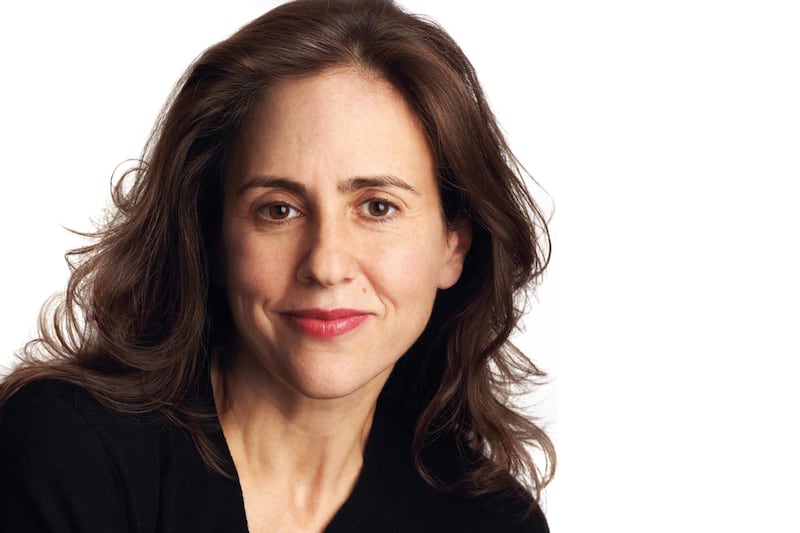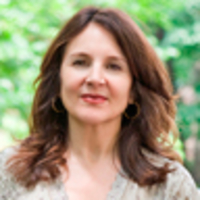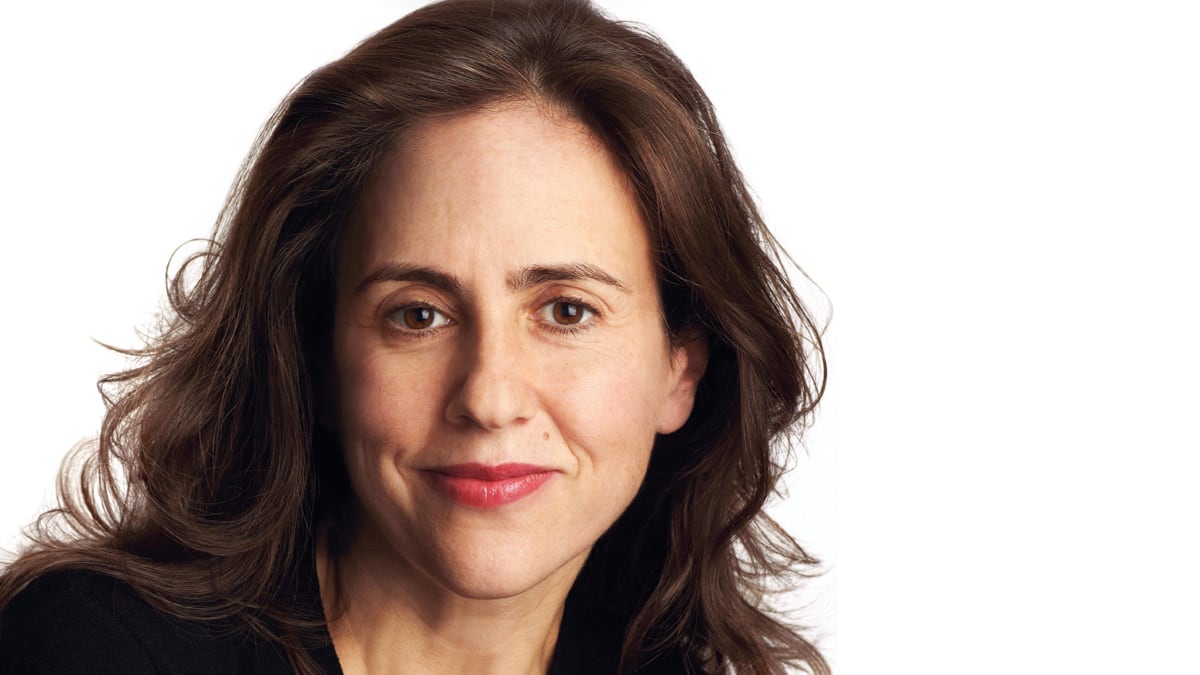Helen Schulman and I met in 1997 when we had both suffered pregnancy loss and quickly became friends over our desire to be mothers. After we had children we coedited an anthology, Wanting a Child: Twenty-two Writers on Their Difficult but Mostly Successful Quests for Parenthood. Now Helen is the mother of two children and the author of an acclaimed short-story collection and five novels. Her latest is the acutely observed, prescient This Beautiful Life, which concerns parents of a 15-year-old boy who receives a sexually explicit video that an eighth-grade girl made of herself, sends it to a friend, and it goes viral. It is a chilling depiction of a contemporary American nightmare. The novel raises questions about how far we can protect our children.
I recently had a chance to speak to Helen Schulman about the book.
Was the novel inspired by a real-life event?
The novel was inspired by many real-life events—more than I reckoned for when I first starting thinking about it. This Beautiful Life is set in 2003, the year I sort of woke up to the fact that incidents that once would have lived and died in a private sphere of embarrassment had, through the ease of the Internet, become huge scandals with a worldwide audience. Over email, a friend sent me a photo of a bridesmaid reaching joyously to catch a bouquet at a wedding, only to have her breasts pop out of her strapless dress. A young woman in the U.K. sent a recent date a sexy email, and he forwarded it to a few friends, and within days the email had gone global and the woman was afraid to leave her house. And then there were kids and their indiscretions, incidents I read about in The New York Times about cyberbullying, but also thoughtlessly self-inflicted wounds where kids sent pictures and videos of themselves naked or performing sexual acts. I think of myself as a private person, and I found by proxy the after-effects of these actions haunting and painful. There were several incidents in New York City, where I live, involving teenagers and their schools, and I found the gossip surrounding them overwhelming—some compassionate conversations, to be sure, but also some needlessly vicious. I was working on my last book then, A Day at the Beach, and was thinking ahead to my next project. I thought to write a nonfiction account of one of these incidents but was stymied, so since my first instinct is to make things up, that’s what I did in writing this book.
How has being the mother of a teenager informed the consciousness of the novel?
Writing a book for me is a ridiculously long process. I have a full-time job, children, and, one after the other, ailing parents. When I first thought about this stuff, my kids were little. This was all outside our collective realm then. But I have to admit, I sort of never got over being a teenager myself. It was a profound and rich, albeit sometimes tortured time, and in the back of my head I took notes.

Your last novel, A Day at the Beach, was about the aftermath of the 9/11 attacks in New York City. The setting for This Beautiful Life is also New York City and concerns a video that goes viral and threatens to rip apart a family. It is about the nature of private vs. public life and the power and dangers of the Internet. Do novelists have an obligation to write about the important events of our time?
It’s funny, because one of my students just dug up a quote I gave in an interview after I wrote my novel P.S. (which was a darkly comic sexual-revenge fantasy), where I talk about what I do as a writer—and since I don’t remember my own quote, I’m going to freely bungle it—but apparently I said something about twisting the world sideways to reality, and this is something I did do in two books. But the last two books you mentioned are almost hyper-real. And in a weird way, I saw myself writing those books as a writer of historical fiction. I felt my job was to turn a lens on the rapidly changing world around me and to record what I saw. My goal (not my achievement, my goal) was to work like Joan Didion in a fictive realm. In truth, living in Manhattan over the past decade, I felt like I was always living in Ground Zero. The horrors of 9/11 and its bloody aftermath, sure. And the wanton rush to greed, consumption, and materialism that gave us the world financial crises, a lot of it born here and in Washington, D.C. It’s too tempting as a writer, given this bird’s-eye view, not to want to grapple with these huge cultural shifts at some point. Where I fault myself sometimes is trying to grapple with it too early. But seize the day and all that. I am here now, so I write about what fascinates me.
This Beautiful Life vividly captures the pulse of New York City, from a kid’s slumber party at the Plaza Hotel and an elite private-school education to the financial and social pressures of raising a family in the city. How does place inform your work? Do you see the novel as a microcosm of reality? Will readers who live outside New York City be able to relate to your canvas?
I am a lifelong New Yorker, and this of course informs my work and is a large part of who I am. But I sincerely hope that this book will appeal to other readers, because I think the issues about privacy, parenting, adolescent sexuality and vulnerability, the earthquake of the Internet, affect everyone. When I first started thinking about this book, these scandals were rarer and more scandalous (now it’s the adults, like Anthony Weiner, who steal the spotlight). But there isn’t a day that I don’t read about a study on the amount of kids (or adults) who sext, for example, or hear a story about someone who was turned down for a job because of inappropriate pictures or comments on Facebook. Right now the Internet doesn’t do a great job of letting people forget and move on. And I think that is a problem a lot of us are unintentionally still grappling with.
You skillfully describe the inner world of a 15-year-old boy whose life is turned upside down by a sexual encounter with a girl at a party. Later the girl sends him a sexually explicit video. What is your novel saying about gender roles of adolescents in contemporary life? Have gender roles changed since you were a teenager? What message is your novel sending, if any, to parents of adolescents?
You know, “the more things change, the more they stay the same,” which is true, of course. Teenagers are always going to experiment sexually, socially, risk themselves romantically and emotionally with passion and perhaps not a lot of forethought—that’s their job. It’s just that when I was a kid, the kind of notoriety that followed a bad move could be contained. You didn’t read about it on Page Six or Gawker. Parents didn’t sue schools for suspending kids, or each other, although probably some of the scores raised in my book might have been settled through fists, violence, and the court of the streets. Lives have always been ruined by heedless acts, but perhaps not so loudly and thoroughly. So in some ways the stakes have changed.
The other big change I see is in sex roles. Growing up in the '70s, feminism was a big part of my consciousness and the rhetoric in the world that surrounded me. As girls, we were taught that we needed to have our own careers and aspirations, we needed to be able to take care of ourselves. We were taught not to depend on our sexuality to get us ahead. Again and again, I heard: You girls can do anything you want. And clearly, many things have changed for women for the better. My little friend from elementary school Elena Kagan grew up to be a Supreme Court justice. Call that pride by lack of association, as I haven’t seen her in 35 years, but boy, am I thrilled about her. What amazed me when my children were in private school was the amount of highly educated women, with M.B.A.s and Ph.D.s and law degrees, who opted out of the workforce. They often did this for good, loving parental reasons—to be active parents to their kids. They had all the choice in the world, and they chose to stay home. I found that interesting. But still—the brain drain! And what was to be done with all that drive and intelligence? Similarly, men who also had choices (a minority—most of us have no choice but to work as much as we can) seemed locked in a different paradigm. All the flexibility the '70s promised in the workplace and the family seemed to me a vanished dream. These guys appeared to shoulder a tremendous amount of responsibility for their families, and in this way we’d almost moved backward, it seemed. The message then to many young girls, even young girls of privilege, from what they see at home, school, in the media, in the fashion magazines, and in the stores, was that the way to get what you want was through sexuality and appearance. Oddly enough, even though we did not have the same opportunities these kids have, my friends and I as teenagers did not see ourselves like that.
What can a novel achieve that a work of journalism cannot? What is the difference?
Tim O’Brien cracked this nut perfectly in his brilliant book The Things They Carried. I can’t do him justice, but I basically subscribe to his tenet that sometimes “story truth” is a lot truer than “truth truth.” It has always been that way for me—the world of the novel illuminates and unpacks and makes sense of the life around me. A story, or even an image, can often do a better job at getting me closer to understanding than a piece of reportage. This is why books have always been the central salvation of my life, and it must be why I am a novelist.
There’s irony and sincerity in your title, This Beautiful Life. What was your intent, and how does the title reflect themes in the novel?
I do see the title as ironic and sincere. The Bergamots do have a beautiful life—a life they bungle out of fear, vanity, desperation, and love. Also, bad choices! The irony in the title is, reductively, referring to the life they aspire to, a life of a certain ease and status, that isn’t actually so beautiful after all.
You are a revered tenured professor of fiction at the New School and also a graduate of Columbia’s M.F.A. program. Can writing be taught?
A good friend of mine, Joanna Laufer, always used to say, writing can’t be taught but it can be saved. I think there’s something to that. I love teaching and I love my students, and many, many of them have gone on to publish beautiful books and stories and essays, to become editors and agents, teachers, lovers of literature. This has been a profoundly rewarding and exciting part of my life. Maybe the trick in teaching writing is really teaching people how to read—not just for story and sweep, although those factors are of paramount importance, but also to understand what language does to the reader on the level of the paragraph, the sentence, the word. How your choices as a writer ensure your reader’s experiences. The tactics and strategies employed by the writer are sometimes almost everything. I studied dance for a while as a kid, and I think learning to write is a lot like ballet training. Discipline, detail, sweat, repetition, the study of those who came before you. The writing workshop works for some people. For others, they are better off left alone.






